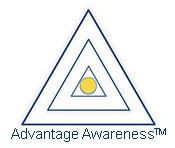While successfully competing on the world’s biggest tennis stages for more than a decade, Jim Grabb became a student of high performance. During these pressure-packed years, Jim gained first-hand knowledge of the wide range of experiences, from playing in the zone (flow states) to getting tight and hesitating (choking).
So, the highs, lows, intense pressure, stresses surrounding injury, not to mention the feel of walking onto the stadium court of the US Open or Wimbledon, were not just theoretical issues, but rather Jim’s daily reality. As a result, he understands the importance of finding and incorporating mechanisms and practices that enable each of us to not only cope with the heightened stress and expectations of public performance, but also find the equanimity to remain present in our day-to-day lives.
During a 13-year career on the ATP Tennis Tour, Jim achieved world rankings of #1 in doubles and #24 in singles, was a two-time Grand Slam Doubles winner (US Open and French Open), and represented the United States in Davis Cup play. He won 2 ATP singles and 23 doubles titles. He also served as Vice-President of the ATP Tour Player Council. Prior to that, at Stanford University, Jim captained the varsity tennis team, playing on two NCAA Championship teams and winning the Rafael Osuna Sportsmanship Award.
After graduating with a BA in Economics from Stanford University, Jim received the Chartered Financial Analyst designation in 2011, and spent 5 years in the investor relations department of a US-based global hedge fund firm. Throughout his career, Jim has also coached elite tennis players and consulted with high-performance tennis programs.
Today Jim is a Unified Mindfulness L2 Coach, a Mindfulness Institute Accredited Teacher and is certified to teach MAPs, an introductory mindfulness curriculum created by UCLA’s Mindful Awareness Research Center. Drawing upon his diverse experiences and broad skill set, Jim blends the mental dexterity training he did as a successful professional athlete, his background in a corporate environment, and his practice of mindfulness to enable every student to improve focus, performance, emotional intelligence, and well-being.


